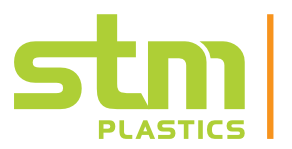Cost-Efficient Plastic Manufacturing
Thermoforming is a transformative process in the manufacturing world, especially in the realm of plastics. This technique involves heating plastic sheets to a pliable forming temperature, then molding them into a specific shape in a mold, and finally trimming and finishing the product. This versatile method offers numerous advantages that make it particularly attractive for various industries, ranging from automotive to consumer products. Here we will explore why thermoforming is considered a beneficial manufacturing process.
Cost Efficiency
One of the primary advantages of thermoforming is its cost-effectiveness. Thermoforming generally requires lower tooling costs compared to other methods like injection molding. The molds used in thermoforming, made from materials like wood, high-density foam, or aluminum, are less expensive and quicker to produce. This aspect is particularly beneficial for prototypes and short production runs where cost and speed are crucial factors.
Moreover, thermoforming is adaptable to changes in design without significant financial penalties. Since the tooling and setup costs are relatively low, manufacturers can quickly adjust designs in response to market needs or customer feedback, supporting more dynamic business operations.
Additionally, the equipment necessary for thermoforming does not need to withstand high pressures, which simplifies its design and reduces its cost. This cost efficiency extends to maintenance and operation, making thermoforming an economically wise choice for businesses looking to optimize their production budgets.
Versatility in Production
Thermoforming excels in its ability to produce a wide array of part sizes and shapes, from small and intricate components like packaging blisters to large panels used in automotive applications. The process allows for the forming of parts up to several feet in size, which is often more challenging and expensive with other methods. This versatility makes thermoforming a go-to choice for industries that require large-scale components with detailed features.
Environmental and Operational Advantages
Thermoforming supports the use of recycled materials, which can be reprocessed and reused in new products. While the process does generate some waste from trimming, many facilities have developed effective reclamation systems to recycle this material, reducing the environmental impact.
The ability to pre-decorate the sheets before forming them is another advantage, allowing for high-quality finishes and aesthetics. This capability is particularly useful in consumer products where visual appeal is important, such as in packaging or appliance components.
Challenges and Considerations
Despite its many benefits, thermoforming does come with some challenges. The cost of producing the initial sheets, trimming requirements, and the limitation of detail only on the mold side are some issues that manufacturers need to manage. However, for many applications, the advantages far outweigh these limitations.
Conclusion
Thermoforming stands out as an efficient, versatile, and cost-effective manufacturing process. Its ability to produce parts of varying sizes and complexities quickly and at a lower cost makes it ideal for both short-run prototypes and large-scale production. With advancements in technology and materials, thermoforming continues to evolve, offering even greater opportunities for industries seeking efficient and innovative manufacturing solutions.
At STM Plastics, we specialize in plastic thermoforming, a process perfectly suited for crafting both simple and complex plastic products. Our technique involves heating a plastic sheet until it becomes pliable, then shaping it using advanced molds. This method is especially effective for high-quality, small-batch productions and short runs, making us an excellent partner for projects that demand quick turnarounds and specialized attention.
We stand out for our efficient and cost-effective tooling, which allows for quicker preparation times and lower costs compared to many other manufacturing processes. This efficiency positions us as a top choice for prototyping and manufacturing large parts up to 10 feet in length. Additionally, we support our clients from start to finish, offering expert advice on material selection to ensure the final product meets all necessary specifications for its intended use.
Contact us today to see if we can help with your next thermoforming project!


Leave a Reply
Want to join the discussion?Feel free to contribute!